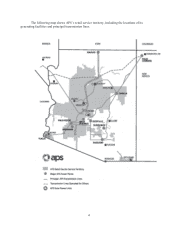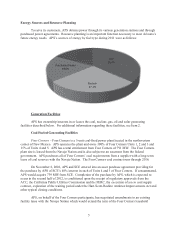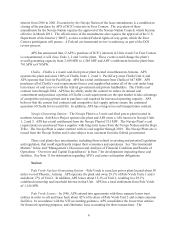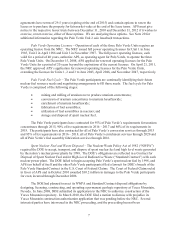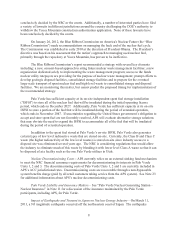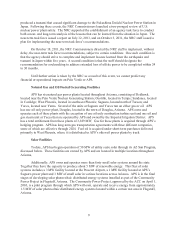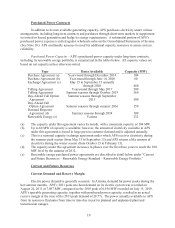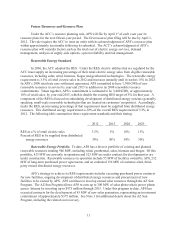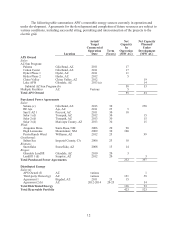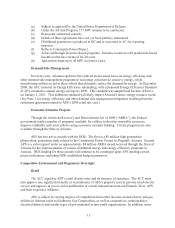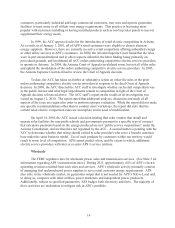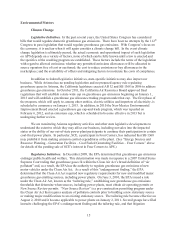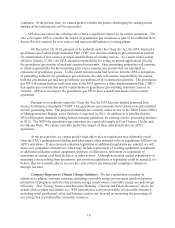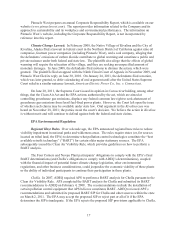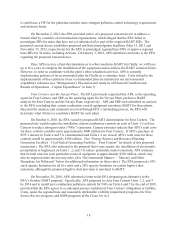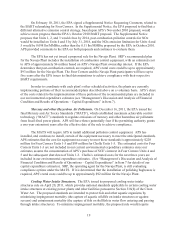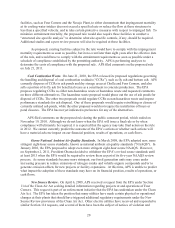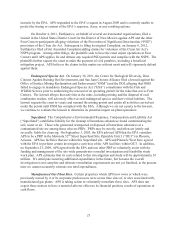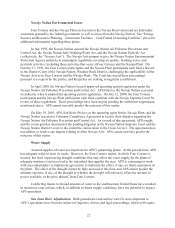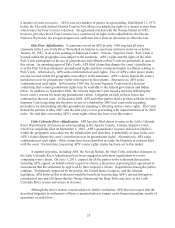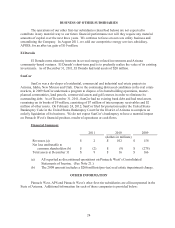APS 2011 Annual Report Download - page 38
Download and view the complete annual report
Please find page 38 of the 2011 APS annual report below. You can navigate through the pages in the report by either clicking on the pages listed below, or by using the keyword search tool below to find specific information within the annual report.14
customers, particularly industrial and large commercial customers, may own and operate generation
facilities to meet some or all of their own energy requirements. This practice is becoming more
popular with customers installing or having installed products such as roof top solar panels to meet or
supplement their energy needs.
In 1999, the ACC approved rules for the introduction of retail electric competition in Arizona.
As a result, as of January 1, 2001, all of APS’s retail customers were eligible to choose alternate
energy suppliers. However, there are currently no active retail competitors offering unbundled energy
or other utility services to APS’s customers. In 2000, the Arizona Superior Court found that the rules
were in part unconstitutional and in other respects unlawful, the latter finding being primarily on
procedural grounds, and invalidated all ACC orders authorizing competitive electric services providers
to operate in Arizona. In 2004, the Arizona Court of Appeals invalidated some, but not all of the rules
and upheld the invalidation of the orders authorizing competitive electric service providers. In 2005,
the Arizona Supreme Court declined to review the Court of Appeals decision.
To date, the ACC has taken no further or substantive action on either the rules or the prior
orders authorizing competitive electric service providers in response to the final Court of Appeals
decision. In 2008, the ACC directed the ACC staff to investigate whether such retail competition was
in the public interest and what legal impediments remain to competition in light of the Court of
Appeals decision referenced above. The ACC staff’s report on the results of its investigation was
issued on August 12, 2010. The report stated that additional analysis, discussion and study of all
aspects of the issue are required in order to perform a proper evaluation. While the report did not make
any specific recommendations other than to conduct more workshops, the report did state that the
current retail electric competition rules are incomplete and in need of modification.
On April 14, 2010, the ACC issued a decision holding that solar vendors that install and
operate solar facilities for non-profit schools and governments pursuant to a specific type of contract
that calculates payments based on the energy produced are not “public service corporations” under the
Arizona Constitution, and are therefore not regulated by the ACC. A second matter is pending with the
ACC to determine whether that ruling should extend to solar providers who serve a broader customer
base under the same business model. Use of such products by customers within our territory would
result in some level of competition. APS cannot predict when, and the extent to which, additional
electric service providers will enter or re-enter APS’s service territory.
Wholesale
The FERC regulates rates for wholesale power sales and transmission services. (See Note 3 for
information regarding APS’s transmission rates.) During 2011, approximately 4.8% of APS’s electric
operating revenues resulted from such sales and services. APS’s wholesale activity primarily consists
of managing fuel and purchased power supplies to serve retail customer energy requirements. APS
also sells, in the wholesale market, its generation output that is not needed for APS’s Native Load and,
in doing so, competes with other utilities, power marketers and independent power producers.
Additionally, subject to specified parameters, APS hedges both electricity and fuels. The majority of
these activities are undertaken to mitigate risk in APS’s portfolio.


